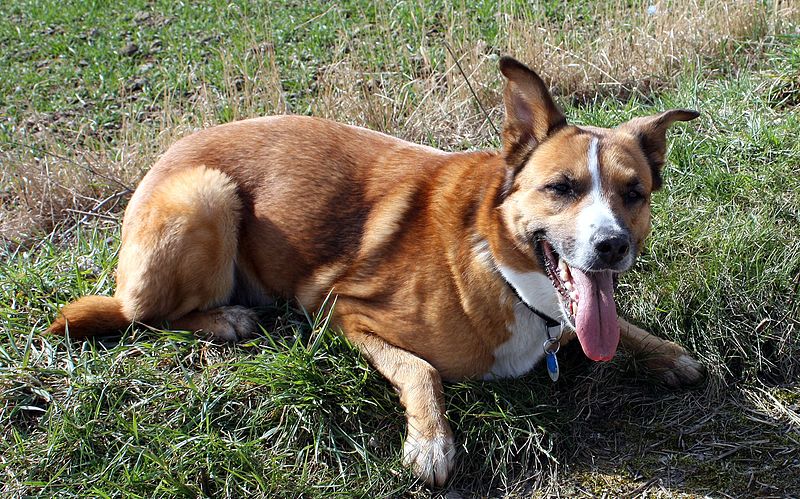This time of year, many of us are a few pounds heavier than normal; but what about our pets. Have we over-indulged them as well?
Britain is the fattest nation in Western Europe, with more than a quarter of the population ranked as obese, according to a recent study by the Organisation for Economic Co-operation and Development (OECD).
But what about our pets? Are they tipping the scales as well?
Unfortunately, the answer is yes. An estimated 40% of UK pets are obese, according to The Royal Canin Weight Management Clinic at the University of Liverpool. With the New Year well underway, perhaps it is time to get a grip on the problem.

Rosie Skinner, Head Vet at Emmview Veterinary Centre, Wokingham, offers timely advice on how you can recognise if your pet is overweight, and steps to ensure a happier, healthier and slimmer dog or cat.
“Obesity in pets,” says Rosie, “is a serious problem, leading to and exacerbating a number of health issues, including diabetes, heart problems and arthritis. In addition, obesity can decrease your pet’s lifespan and seriously impair its quality of life.
“To be classed as clinically obese,” says Rosie, “your pet has only got to be 15% over its normal body weight.”
In most cases, the reason pets carry too much weight is simple: they eat more food than they burn off – exactly the same as for humans.
It’s a dog’s dinner…
Rosie points out additional factors that can contribute to a pet’s obesity.
Breed – certain breeds have a higher risk of becoming obese, including Cocker Spaniels, Labradors, Golden Retrievers, Basset Hounds, Shetland Sheepdogs and Dachshunds.
Age – the risk of obesity can increase with age. Keep this in mind when feeding your pet, especially when doling out the treats.
Gender – with the exception of older pets, obesity can be more common in female animals than in males.
Neutering – there is some connection between obesity and reproductive status; this is because spayed and neutered dogs generally require fewer calories to maintain a healthy weight.
Pet owner – fortunately, pets can’t stop by McDonalds after a stressful day or break open a tub of ice cream if they’re feeling sad; their food and exercise levels are at owner discretion. As long as the human in the relationship makes the right choices, pets can overcome their obesity issues.
Keep your eye on the ball
“It is important to keep an eye on your pet’s weight,” says Rosie, who recommends pet owners regularly check the following:
– Can you see and feel the outline of your pet’s ribs without excess fat covering them?
– Can you see and feel your pet’s waist? Is it clearly visible when viewed from above?
– Is your pet’s belly tucked up when viewed from the side?
– If you answered no to any of the above, your pet may be overweight.
“Regular and fun exercise is essential when keeping your pet fit and healthy,” continues Rosie. “There are plenty of ways to exercise animals besides walking. Dogs enjoy running and playing games like fetch, which can make exercising exciting and fun for you and your pet.”
However, exercise isn’t the only key to losing the pounds; it has been shown that calorie restriction has a greater impact on weight loss than increased exercise.
Rosie warns, however, that sticks can be dangerous. “We see a lot of casualties where sticks have been swallowed or become stuck in a dog’s throat. It’s best to use a durable plastic bone or ball that’s too big for your dog to swallow”.
Do cats need exercise too?
You may think cats need very little exercise, but the opposite is true.
House cats in particular need regular exercise to break up their routine of eating and napping. Owners should set aside time every day to play with their cats. You can also encourage them to ‘work’ for their food, using toys that release food when pushed and played with.
Outdoor cats should exercise as well because it’s difficult to tell what they get up to when they’re outside. The best toys are those that inspire cats to chase and pounce, such as fishing rod-type toys and climbing equipment.
“Making these small changes can help maintain your pet’s proper weight,” says Rosie, “ensuring your best friend and companion lives a happy, healthy life while in your care. You are a big factor in the life and health of your cat or dog.”
If you are concerned about your pet, make an appointment with your vet to ensure there are no underlying medical problems. You’ll also be able to get sound advice on how you can help your pet to maintain a healthy weight.
